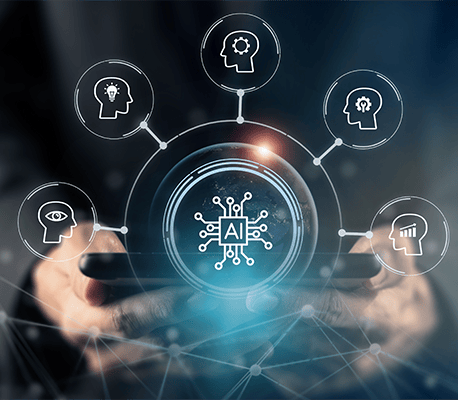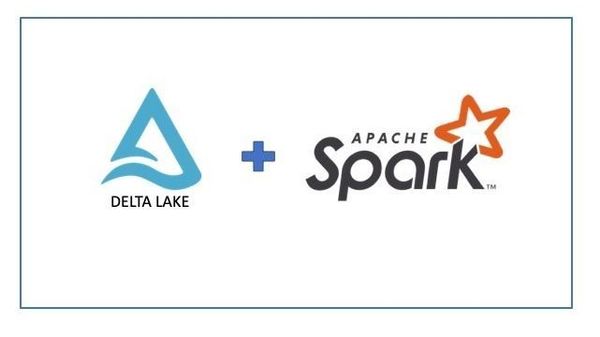The digital infrastructure landscape is rapidly evolving due to the growing demand for data, computation, and connectivity. Traditional methods of managing and optimizing this infrastructure are often labor-intensive, resource-heavy, and prone to human error. Generative AI presents an effective solution by automating repetitive tasks such as network configuration, security monitoring, and capacity planning, allowing experts to focus on more strategic activities.
Additionally, Gen AI enhances security by detecting and responding to threats in real time, helping to develop advanced security protocols and anomaly detection systems. It also improves performance by analyzing vast data sets to identify bottlenecks and optimize resource allocation. With predictive maintenance capabilities, Gen AI can anticipate infrastructure failures, reducing downtime and enabling proactive measures.
Furthermore, Gen AI can tailor user experiences by customizing network settings, content delivery, and application performance based on individual preferences, ultimately improving efficiency and user satisfaction.
Taking A Distance Stance From Traditional AI - GenAI For the Digital World
Gen AI architecture has the unique ability to generate new content from extensive datasets. You see, it’s not about analyzing information but using insights from data to create something entirely new and functional. This capability is crucial for businesses looking to scale and adapt to the ever-changing digital landscape.
According to a 2024 industry report, a substantial portion of AI investments is poised for allocation over a couple of years, among which 34% will be directed towards predictive AI and 39% on interpretive AI applications. Thus, businesses must strategize around these technologies. This gives them enough room to anticipate how AI will be woven into various aspects of operations. That’s where reassessing digital infrastructure takes center stage with private AI.
Securing Data and Enhancing Customization- The Need For Private Gen AI
Private AI refers to artificial intelligence systems that are developed and deployed within a closed environment, typically by or for a specific organization. These systems are designed to ensure data privacy and security by restricting access to internal, proprietary data. Unlike public AI, which relies on open, shared data, private AI operates within an organization’s infrastructure, using company-specific data and tools, such as internal databases, APIs, and private networks, to perform tasks while maintaining control over sensitive information.
As digital infrastructures evolve, organizations can’t help but invest in comprehensive data strategies to ensure accessibility, verification, and data security for artificial intelligence architecture and its functionalities. This is more crucial given the industry insights that forecast nearly 70% of enterprises will establish strategic partnerships with cloud providers to access GenAI platforms and infrastructure by 2025.
No wonder such advances will see a surge in robust data and cost governance measures. The only way to make it count is private Gen AI addressing privacy and compliance demands. But that’s not all! Private Gen AI serves a dual purpose—it helps businesses harness the benefits of AI while maintaining strict data privacy and control. That way, your business ensures that AI solutions remain secure and high-performing.
Further, private GenAI supplements an organization's public cloud activities. For instance, public AI solutions utilize broadly available data to train large language models and save time and costs. Private Gen AI allows organizations to retain sensitive data on more secure, privately controlled systems. Service providers are increasingly facilitating this by offering colocation and direct connections to public clouds, bridging the gap between public accessibility and private security. Here are some potent industry applications of private AI:
- Manufacturing: A manufacturer of jet engine turbines could use public AI to detect general anomalies. In contrast, private Gen AI could be specifically trained to recognize unique thermal signatures indicative of imminent blade failures using proprietary data and historical records.
- Healthcare: While public AI might analyze widespread trends in medical imaging, a hospital could implement private Gen AI trained on its unique datasets and equipment, enhancing diagnostic accuracy for its patient population.
- Financial Services: Banks might employ public AI for broad fraud detection analysis. However, private Gen AI can be tailored to analyze transactions with a nuanced understanding of specific customer behaviors and risk profiles, providing a more sophisticated fraud detection system.
- Network Optimization and Management: Networks are the backbone of digital infrastructure, connecting devices, applications, and users. Gen AI is revolutionizing network optimization and management by automating complex tasks, improving performance, and enhancing security. Here are some key applications:
- Traffic Routing and Load Balancing-Gen AI can analyze real-time network traffic patterns and predict future demand, enabling dynamic routing and load balancing. This ensures optimal distribution of traffic across network resources, preventing bottlenecks and improving performance.
For example, Gen AI algorithms can identify congested paths and reroute traffic to less crowded routes, minimizing latency and improving user experience.
- Network Capacity Planning-Predicting future network capacity requirements is crucial for avoiding outages and ensuring smooth operation.
Gen AI can analyze historical data and current trends to forecast future demand, enabling organizations to proactively scale their network infrastructure. This reduces the risk of overprovisioning or underprovisioning, leading to cost savings and improved resource utilization.
- Network Security and Anomaly Detection-Gen AI can detect anomalies in network traffic patterns, identifying potential security threats and malicious activities. This can help organizations prevent breaches, data theft, and other cyberattacks.
For instance, Gen AI algorithms can analyze network logs and identify suspicious activity patterns, such as unusual traffic volumes or connections from unknown sources.
- Network Configuration and Automation-Gen AI can automate network configuration tasks, reducing human error and improving efficiency. It can also learn from previous configurations and optimize network settings for optimal performance.
For example, Gen AI can automatically configure network devices, update routing tables, and apply security policies, freeing up network engineers to focus on more complex tasks. A good example is Google's Project BARD.
- Traffic Routing and Load Balancing-Gen AI can analyze real-time network traffic patterns and predict future demand, enabling dynamic routing and load balancing. This ensures optimal distribution of traffic across network resources, preventing bottlenecks and improving performance.
So, private Gen AI enhances the control over proprietary information and ensures that AI implementations are deeply integrated and customized to meet industry requirements. Leading tech businesses have deployed Gen AI architecture to synthesize large volumes of data efficiently. This includes summarizing detailed reports, transcribing meetings, and even enhancing customer service by generating responses to inquiries. The efficiency gains are undeniable, though not without challenges, such as occasional inaccuracies or contextually inappropriate content.
Staying on Top With Robust Infrastructure Management
The real power of GenAI lies in its ability to transform data management within digital infrastructure and tech services sectors. Companies can use GenAI to transition from traditional reactive to proactive approaches. For instance, GenAI can analyze traffic from broadband networks or monitor security data to predict potential failures or breaches before they occur. This predictive capability allows companies to address issues before they impact the business, significantly improving service quality.
Practical Applications and Case Studies
Here’s a look at some examples of GenAI deployment extending across various operational facets:
- Infrastructure Optimization: Large language models require significant computational power, pushing advancements in hardware like specialized chips and enhanced data centers.
- New Service Offerings: Companies like DAS42 and Carbon60 use GenAI to help clients transform their operations by leveraging these technologies.
- Enhancing IT Services: GenAI integrates into services like ServiceNow, enhancing MSPs' ability to predict and prevent infrastructure issues preemptively.
- Administrative Efficiency: GenAI helps automate routine tasks such as documentation and report generation, reducing time and resource expenditures.
- The Power of Generative AI in Cyber Security: Generative AI enhances cybersecurity by automating threat detection and response, increasing the speed and accuracy of identifying risks.
- Threat Detection and Prevention: It helps identify new and emerging threats, such as AI-generated malware, before they can cause harm.
- Security Automation: Generative AI automates routine security tasks, improving efficiency and reducing the manual effort required for cybersecurity operations.
- Ethical Considerations and Responsible AI: The use of generative AI in cybersecurity must follow ethical guidelines to avoid misuse, such as creating harmful deepfakes or privacy violations.
- Gen AI for Network Traffic Analysis: Generative AI analyzes network traffic to detect anomalies and patterns that indicate malicious activity.
- Gen AI for Intrusion Detection: It enhances intrusion detection systems by identifying sophisticated attacks through predictive modeling and data analysis.
- Gen AI for Malware Analysis: Generative AI accelerates the process of analyzing malware and creating effective countermeasures against AI-generated malware.
Risk Management With Best Practices
While GenAI's potential is vast, its implementation comes with significant risks, including data security and the perpetuation of biases within AI models. Companies are advised to adopt GenAI cautiously, starting with internal applications before rolling out customer-facing features. Governance policies are essential to regulate usage and protect sensitive data, ensuring that GenAI tools are used responsibly and effectively.
GenAI will likely become an integral part of more tools to improve IT observability, security, customer support, and more as it continues to evolve. The next decade will be pivotal in optimizing and securing GenAI applications to harness their full potential without compromising safety or ethics.
Gen AI And Digital Infrastructure-The Way Forward
Generative AI is the newfound way to realize your digital infrastructure goals. It has the power to help enhance how companies operate and deliver services. That’s why investing in Generative AI training can drive unmatched operational efficiencies and mitigate potential issues before they escalate.
As we move forward, balancing innovation with cautious implementation is crucial, ensuring that GenAI's integration into digital infrastructures is as beneficial as it is revolutionary. And that’s where one could use some help from a worthy learning partner. Say hello to StackRoute, your go-to B2B learning solutions partner for emerging tech. Our Gen AI training program is uniquely tailored to upskill your workforce and deliver maximum leverage. Best in class training environment, leading industry mentors, and relevant curriculum makes us a preferred knowledge partner for forward-thinking businesses.
If this sounds like everything you could have asked for your business, we are more than happy to help. Click here to explore our Gen AI offerings in detail.
Posted on 18 October, 2024





